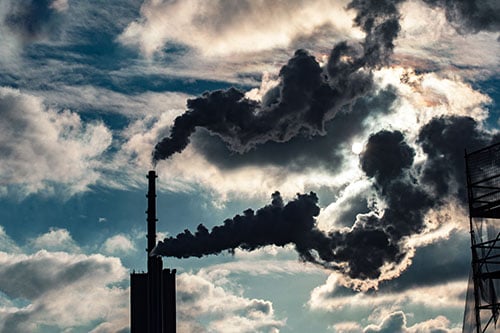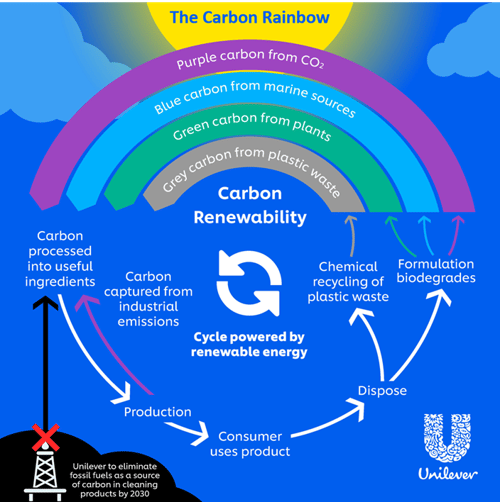
The Intergovernmental Panel on Climate Change (IPCC)’s recent review of the latest climate science made for an uncomfortable and alarming read.
Despite national climate pledges, we still urgently need to limit the global temperature rise to 1.5°C. This requires an immediate peak in global greenhouse gas emissions and a reduction of 43 percent this decade.
The next few years are critical for the future of humanity. While a growing number of businesses have targets in place to reduce their energy dependence and switch to clean energy sources, there is a blind spot in the race to zero: embedded carbon.
A Hidden Cause of Climate Change
The chemical industry is one of the largest industrial energy users in the world. It is also the backbone of modern manufacturing; from clothing to technology to household products to construction, most businesses rely on chemical feedstocks in some form.
Even with a boom of supply of renewable energy to power its operations, the chemical industry is still heavily reliant on fossil feedstocks to make chemicals, with currently 85 percent derived from fossil resources. Global demand for products made with oil currently amounts to 450 megatons of embedded carbon per year, which will end up in the atmosphere as CO2 in one way or another, either through incineration or (bio)degradation.
The Future is Circular Chemistry
As one of the world’s largest cleaning and laundry businesses and big user of chemicals, this is a major challenge at Unilever that we need to address. After we evaluated the full life cycle of our products, we found that 51 percent of life cycle emissions were related to the raw materials we use. That’s why we published our Clean Future strategy in 2020, in which we pledged to eliminate virgin fossil-derived chemicals from our formulations, a move which we estimate will reduce our product emissions — arguably the hardest to abate — by up to 20 percent.
Because chemicals are made of carbon, we can’t decarbonize our formulations completely. Instead, we must find alternative sources of carbon that are already available above the ground to keep it in circularity. We call this the Carbon Rainbow.

You can’t make cleaning products without chemicals, but you can make chemicals without fossil fuels. That’s exactly what Unilever is striving to do, as we work toward our goals of halving the full value chain emissions of our products per consumer use by 2030 and reaching net zero across our value chain by 2039.
The Road to a Cleaner Future for All
The transformation ahead is by no means small, but our recent launches show what can be done. Here are four key learnings from our journey so far:
- Map the full life cycle of your emissions, not just up until point of sale. The end-of-life emissions, notably from the embedded carbon you have used, must be accounted for. Once you have the full analysis, you can determine the areas where you have control and can make changes (i.e., product development) and those where you need to work with your suppliers and others.
- Integrate your sustainability and business strategies. It’s no longer just a moral objective — it’s essential to future-proof your business. Record-high crude oil and gas prices show we can no longer be so heavily reliant on the use of virgin fossil chemicals. Instead, we need to diversify non-fossil carbon feedstocks and create agile supply chains of the future.
- Bring your consumers on the journey. A challenge we have faced is how we “sell” recycled carbon to consumers. It’s a marketing conundrum, particularly as many consumers don’t connect the use of fossil carbon with everyday goods. Our learning was to keep it simple and focus on what adds value to consumers life rather than pushing complex sustainability messages.
- Finally, as with any transformation, we must all work together—chemical users in driving the scale and demand, chemical producers in trialing alternative feedstocks, policy makers in creating an enabling environment, and consumers in making responsible purchasing choices.
Download Innovating Net Zero Products and Services, a Transform to Net Zero Transformation Guide, to learn more.
Florian Vernay is global head of Communications, Corporate Affairs and Sustainability at Unilever Home Care.


